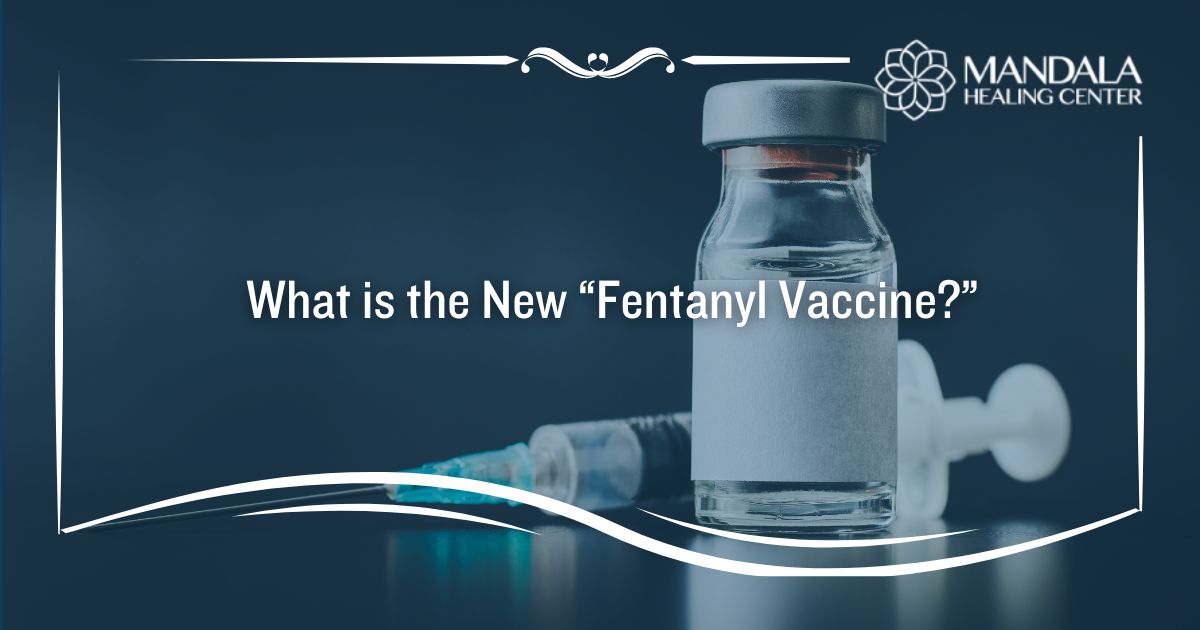Since the late 1990s, America has been facing an opioid epidemic. This began when pharmaceutical companies assured doctors that their new opioid drug wasn’t addictive, causing the overprescribing of habit-forming narcotic pain relievers.[1] Unfortunately, the rates of opioid addiction and opioid-related deaths have only increased over the last 30 years.
According to the CDC, 80,816 people died from an opioid overdose in 2021.[2]
As the opioid epidemic claimed more lives, a new substance arrived on the streets. Initially intended for severe cases of pain in hospital settings, a synthetic opioid drug known as fentanyl began dominating the opioid epidemic. Fentanyl is an extremely dangerous opioid, being 50 times stronger than heroin and 100 times more potent than morphine.
Synthetic opioids like fentanyl were responsible for 71,238 deaths out of the 80,816 people who died from an opioid overdose in 2021.[2] Because of this, experts and scientists are searching for a new way to combat the opioid epidemic. Currently, a research team at the University of Houston is working on creating a fentanyl vaccine to prevent overdose deaths from occurring.[3]
Understanding Fentanyl’s Role in the Opioid Epidemic
While fentanyl is safe to take under the direction of a medical professional, the fentanyl that is being found on the street is not the same. Illicitly manufactured fentanyl (IMF) is the substance that is causing overdose death rates to skyrocket in America. IMF is created by illegal drug manufacturers and often mixed into other substances sold on the street so that drug dealers can increase their profit, spread out their products, and cause their clients to become addicted faster.
In other words, most of the people who overdose on fentanyl are not even aware they are taking it, which is one of the reasons why fentanyl is so dangerous. For example, if you went out and bought an oxycodone pill from a drug dealer, you could be unknowingly buying a pressed pill that contains lethal amounts of fentanyl.
According to the DEA, out of the 107,375 overdose deaths that occurred in the last 12-month period, 67% involved fentanyl.[4] This means that the majority of the overdose deaths in America are caused by fentanyl, making it extremely important for our country to find solutions to the ever-growing opioid epidemic.
What is the Fentanyl Vaccine?
According to a press release provided by the University of Houston, “Over 150 people die every day from overdoses of synthetic opioids including fentanyl, which is 50 times stronger than heroin and 100 times stronger than morphine.”[3]
Because so many people are dying from fentanyl overdoses, a research team at the university decided to do something about it. To combat fentanyl’s role in the opioid epidemic, these individuals are creating a fentanyl vaccine that could prevent the drug from affecting a person’s brain.
According to the press release, 80% of people dependent on opioids suffer from a relapse.[3] This could have devastating consequences in today’s society, due to the high likelihood of drugs tainted with fentanyl. The University of Houston reports, “The breakthrough discovery could have major implications for the nation’s opioid epidemic by becoming a relapse prevention agent for people trying to quit using opioids.”[3]
The study’s lead author Colin Haile explains how this fentanyl vaccine will work. They report, “Our vaccine is able to generate anti-fentanyl antibodies that bind to the consumed fentanyl and prevent it from entering the brain, allowing it to be eliminated out of the body via the kidneys.”[3]
While the fentanyl vaccine has not gone through human trials yet, it did not cause any adverse reactions in the rats involved in their lab studies. This means that the vaccine could provide some relief from the opioid epidemic that has been plaguing our country for decades.
How You Can Prevent Fentanyl Overdoses in the Meantime
Unfortunately, the fentanyl vaccine is not yet approved for human use. However, there are still ways that you can prevent fentanyl overdoses from occurring and stop them from becoming fatal. While the best way to prevent a fentanyl overdose is to abstain from illicit substances, doing so is very difficult if you are currently experiencing a substance use disorder.
If you are going to continue taking drugs, you should consider the following overdose prevention tips:
- Never use drugs alone. Always tell a friend you are planning on using substances and make a plan for them to check up on you.
- Never take more of a substance than you know you can handle. This is especially important if you are using drugs after a period of abstinence, as your tolerance will be lower than it was previously.
- Always use fentanyl test strips when you are taking a drug. Fentanyl is colorless, odorless, and tasteless, making it impossible to spot with your eyes. Fentanyl test strips are easy to obtain and use.
If you or your loved one suffers from an addiction of any kind, you should always carry Narcan. Narcan (naloxone) is an opioid reversal medication that can stop the effects of an opioid overdose if used immediately. This medication is available in many pharmacies without a prescription and at community-based naloxone programs or syringe services programs.[5]
Find Help for Fentanyl Abuse and Addiction Today
If you or a loved one suffer from opioid addiction, now is the time to receive treatment. Fentanyl is now found in a wide variety of drugs on the street, making it extremely dangerous for anyone to abuse illicit substances. Attending professional addiction treatment can allow you to gain long-term recovery and prevent you from experiencing a life-threatening opioid overdose.
At Mandala Healing Center Center, we are passionate about helping people find freedom from their addiction and rebuild their lives on a strong foundation of recovery. We have a team of motivated and compassionate professionals that are dedicated to helping people recover. Contact us today to speak with an admissions counselor about starting one of our top-rated fentanyl addiction treatment programs.
References:
- https://www.hhs.gov/opioids/about-the-epidemic/index.html
- https://www.cdc.gov/nchs/pressroom/nchs_press_releases/2022/202205.htm
- https://uh.edu/news-events/stories/2022-news-articles/november-2022/11142022-fentanyl-vaccine-haile-kosten.php
- https://www.dea.gov/fentanylawareness
- https://www.cdc.gov/stopoverdose/naloxone/index.html












